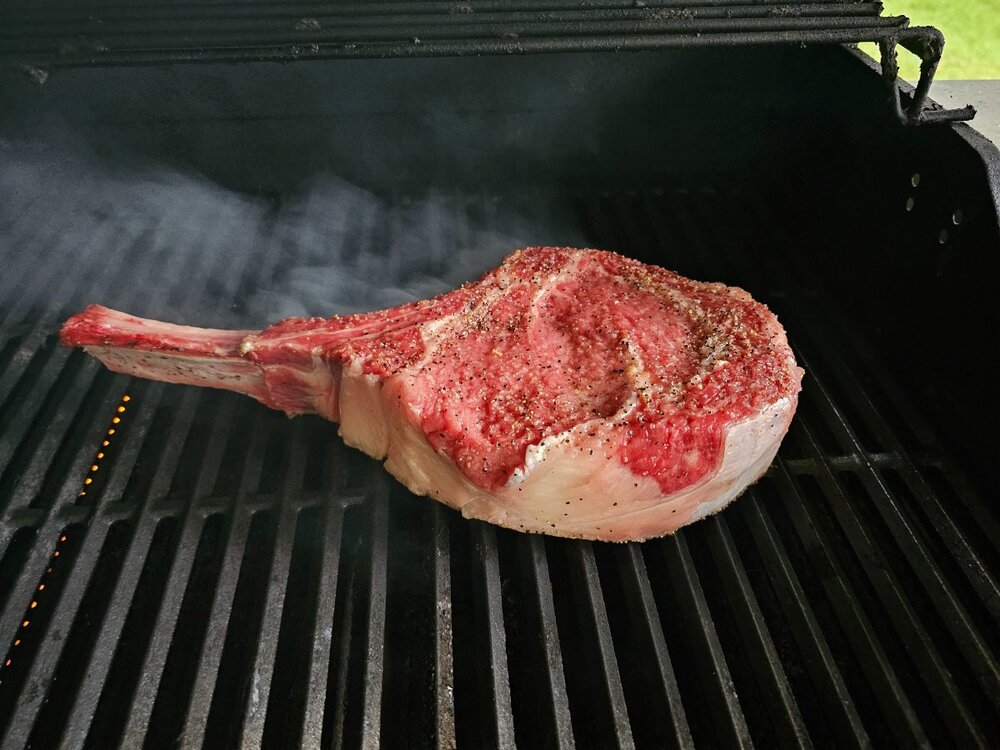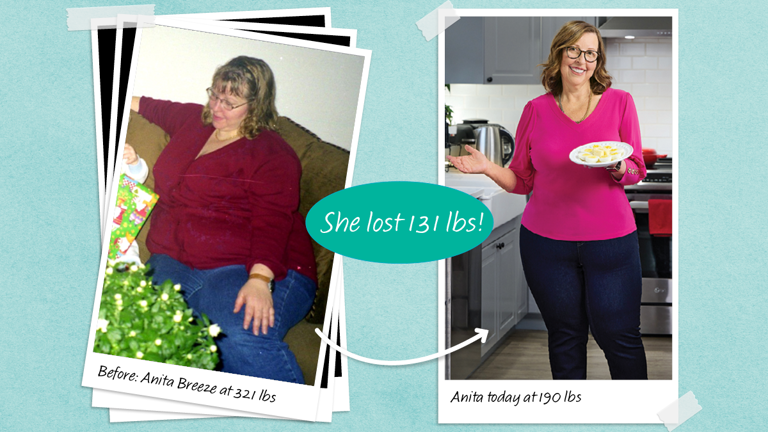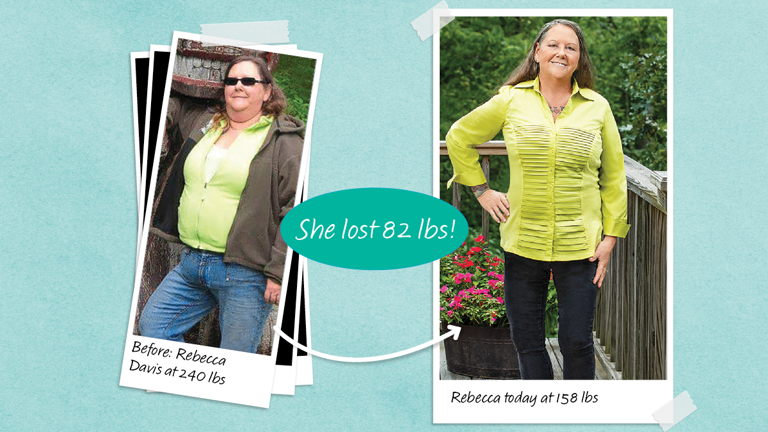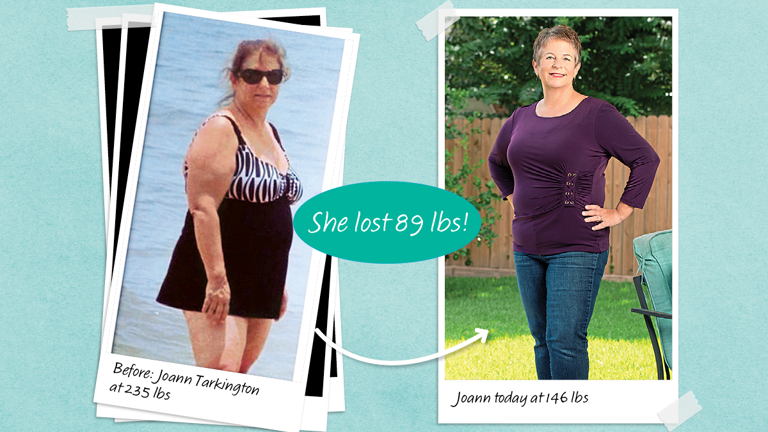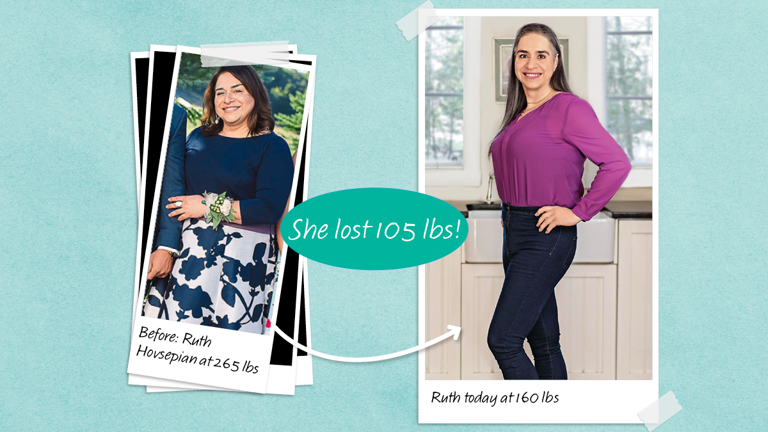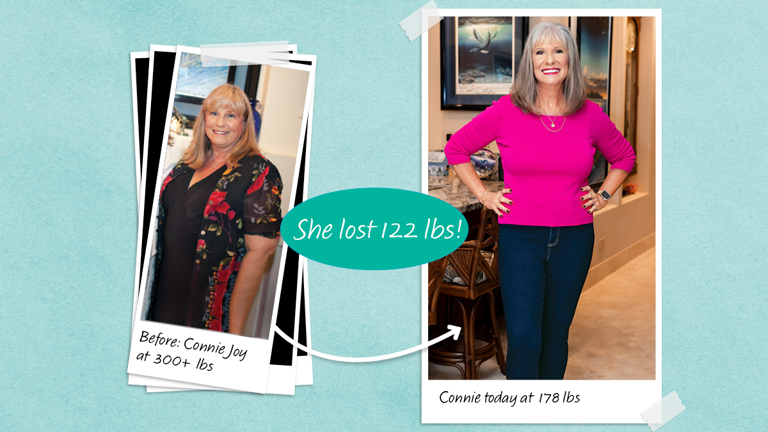Bob
Community Manager
-
Joined
-
Last visited
-
Currently
Viewing Event: Is Veganism Dying a Slow Death?
Everything posted by Bob
-
Can you recommend a good carnivore book?
Yes, Paul Saladino's "Carnivore Code" is a great book but very deep, detailed, science-y, with a ton of research and references. I'm currently working through this one. I have Shawn Baker's "The Carnivore Diet" which I have flipped through but haven't read yet - as I only do one at a time. I also read Dr. Ken Berry's "Lies My Doctor Told Me" and "Kick Ass After 50", which aren't carnivore books per se, but he's a carnivore advocate and they made for good reads. His books are written in easy to understand language.
-
Doing research on this way of eating!
Welcome aboard. We're here to help. Nice to know that you have a someone in medicine that is on board with this diet as well.
-
Low Energy on Carnivore Diet
It's no surprise that you will feel more energetic when you eat carbs before a workout, because the body will prioritize burning those carbs for fuel first to get them out of your body. Likewise, the body will even burn alcohol BEFORE it burns carbs, because it's more imperative to get the alcohol out of the system quickly. But many people who are into working out do eat carbs before a workout. If I were to do that though, I would personally stick to the fruits and avoid the grains. On the other hand, you have carnivores who are ripped like Shawn Baker and Anthony Chaffee who eat nothing but meat and work out all the time, so it can be done.
-
Best Type of Salt
Generally speaking, Redmond's Real Salt, Celtic Sea Salt, and Pink Himalayan Salt are all going to be on equal footing. I do want to get some of the Maldon's. It sounds really good.
-
Just getting started... a month in
For starters, congratulations on your successes so far. Yes, eating out can be a hinderance. We used to eat out ALL the time. But since I've started this WOE we hardly go dine out anymore. Maybe once every week or two. The family has learned which restaurants I don't mind eating at, where I can eat carnivore or at least mostly carnivore/ketovore. I tried to diet for years and it was always difficult when the rest of the family was not on board. Eventually, I just had to commit and resist their peer pressure to take me down, lol.
-
Bezos Earth Fund Invests $60 Million In Centers To Improve Alternative Meats [emoji35]
And this is a major irony here. And goes to show that the "environmental impact" and "carbon footprint" arguments against eating meat are complete vegan bologna.
-
just started/just joined
That's the gist of it 😉 Keep doing what you're doing. And ask away. Welcome aboard!
-
What Did You Eat Today?
I followed the instructions on the package, which was to heat to 400'F degrees and then place in the grill but not over the direct heat. My temps probably were more like 500'F. I would flip it every 7 or 8 minutes, and it probably took 40 minutes to cook to a nice Medium - which is where my wife and I could compromise on, lol. I will say a meat thermometer was pretty crucial in knowing when this would be done or about done.
- What Did You Eat Today?
-
(UK) Where do you source your meat?
Nice. That works out to $8.84/lb (USD) which is much lower than you will find in your average store or market. He posted this pick of the testes on the grill the other day...
-
Costco Beef?
The Burger King experience is interesting. I haven't had any Burger King since being on my carnivore diet. They claim 100% USDA beef, although I am sure it's "Standard" grade. But in any event, it should be pretty benign, and therefore edible. I know they had some controversies regarding their meat years and years ago. But YES, the Costco beef should be good stuff. I get almost all my meat from Sam's Club, and I believe the fresh meat there is either Prime or Choice (Prime is top tier and will cost more). I usually buy the Choice cuts to save money. They also have prepackaged Wagyu as well as Grass Fed, and I get both of these as well. I don't think you will have a problem with Costco meats, at least in the fresh meat sections. I might be more leary of buying a frozen package of burgers, precooked or not, as those would most likely be Select or Standard grade - not that there's anything wrong with that. In the end, meat is meat. The grading has to do with how much marbling is present along with the age of the cow at the time of processing.
-
How can I GAIN WEIGHT on carnivore?!
Nice video. In a nutshell, eat more, and preferentially more fat. This might mean that if you are only eating 2 meals a day because carnivore is so satiating, you might need to make yourself eat 3 meals regardless.
-
What Did You Eat Today?
I'm a big eater 🙂 It doesn't seem to faze me any. I used to have a couple beers with dinner and a bourbon right before bed to help me go to sleep. When I decided to go carnivore and try to lose weight and address my health, alcohol had to go. But once a month I go to this Open Mic Night hosted by my cousin, so I have a meal and a drink to support the arrangement. Fortunately, the establishment is cool enough to make me a carnivore meal.
-
One month carnivore
This is true, and admittedly an area where I struggle. Other carnivores report needing less sleep or having interrupted sleep. I've heard it could be related to my chronic kidney disease also. But I'm basically biphasic. I sleep from 11pm-1am, sometimes 2am, and wake up. Then I fall back asleep at 3am or 4am and get up at 7-8am. I miss the days when I could sleep for 8-10 hours, lol. Sometimes I think I am plateaued on my weight loss due to this sleep issue. This is true as well. I've done a few 24 hour fasts, and one 40 hour fast, but honestly I am just not into fasting. I would rather eat, lol.
-
Hello!
Welcome aboard @Michael123 That's awesome progress. It mirrors my own - 55 pounds in 6 months, if my math is right (1 stone = 14 lbs). I have a bourbon just once a month, sometimes twice if we go out for karaoke 😄
-
Daily Movement Goals
Does climbing up and down this scaffold all day count? 😄 This is a fireplace that I finished today. 12 foot wide, 16 foot ceilings, and the tiles were 24 inches by 60 inches. It sure felt like a workout, lol.
-
Nowler's Introduction
Welcome aboard @Nowler! Same here. As long as you're eating your meat, we're all on the same team 😉
-
One month carnivore
Was this a previous commitment to the carnivore diet or was it a different diet? This is true. There is no way I could have intermittent fasted on any previous diets that I tried. But filling up on fat and protein with meat can make me feel full for way longer, making it easier to fast if I want. If you are in good physical health, I generally do not see the harm in occasionally having a single ingredient whole food that nature provides, whether that makes you "keto" or "animal-based", provided you remain carnivore-centric. On the other hand, keep your eyes on @Geezy's posts around here. He might just be our most strict carnivore among us and he finds a way to keep shaking things up for variety.
-
Exercise for new carnivores?
It's probably more of a matter of getting back into the habit, the swing of things. I walk a decent amount, participating in the local hiking sprees or even just walking the dog. I try to sprint when I can. I also use dumbbells and do push-ups and crunches. I recently bought a treadmill but I haven't set it up yet, but I want to get my heart a-thumpin' more. I really want to get a weighted vest and go rucking (basically means walking wearing weights).
-
Hey!
Welcome aboard Mikenna! I'm glad to hear that you are feeling really great. How long have you been at it now?
- Carnivore is a fanatical right-wing, male diet, right?
- What Did You Eat Today?
-
The Carnivore Diet Surpasses Keto In Popularity: 5 Women Over 50 Explain Why and How It Worked For Them
True keto is pure as gold. Modern keto is absolute garbage. Real keto is fatty red meat and low carb veg, which is just fine. That's the way it originally started out. But then "keto" became bastardized by the Big Food companies who were missing the dollars from your wallet. They are the ones that came up with all these "keto" breads, tortillas, cookies, cakes, pies, bars, etc, lying to your face about the carb count, hiding it under the unregulated "net carb" moniker. I fell for it myself for quite some time.
-
The Carnivore Diet Surpasses Keto In Popularity: 5 Women Over 50 Explain Why and How It Worked For Them
The Carnivore Diet Surpasses Keto In Popularity: 5 Women Over 50 Explain Why and How It Worked For Them Story by Allison Nemetz Can eating like a lion trigger easy weight loss and roaring good health? Devotees of the carnivore diet say it can - and they've got so many people curious, the meat-centric approach has gone viral on TikTok. So far, #carnivorediet boasts more than a billion views and interest in the diet on social media has risen significantly since the start of the year. And it's helping women over 50 lose big when other diets fail. Keep reading to learn more about science behind the trend, then get ready to be inspired by carnivore diet before and after photos of women who found amazing success. How the carnivore diet works The carnivore diet is an offshoot of the carb-cutting keto diet, but it's a good deal simpler: The key is to eliminate all plant foods and eat only animal foods. So you'll enjoy options like eggs, butter, bacon, cheese, fish, poultry, pork and beef until you're comfortably full. And since carnivore staples are naturally zero-carb or quite low in carbs, you don't have to measure, count or track anything. In many ways, carnivore works exactly like keto. By replacing most of the carbs you eat with protein and fat, your body no longer makes enough blood sugar to fuel itself. "This triggers your body to naturally begin turning excess fat into an alternate fuel called ketones," explains Tennessee-based keto expert Ken Berry, MD, author of Lies My Doctor Told Me. The result? Your body can burn a lot more fat. Why carnivore may work better than keto "A basic keto diet is great for many people. But if it's not working for you or you want those next-level results, that's when you try carnivore," Dr. Berry says. That's because the fewer carbs you eat, the more ketones you make. And studies show boosting ketone production speeds weight loss by up to 1,150%. On top of that, carnivore guarantees carb intake stays very low, "which leads to remarkable hunger control," the doc says. "Some people only eat one or two meals a day because it's all they want." (Click through for more on how the carnivore diet for weight loss may be more effective than keto.) Another potential carnivore advantage: "You're eliminating a lot of foods that may be inflammatory specifically for your body," notes Dr. Berry. That might be anything from artificial sweeteners or soy to spinach or zucchini. "When inflammation comes down, you lose retained fluid, burn more fat and see health turn around." (Click through to read more about the link between inflammation and weight gain and find out how the carnivore diet even helped one woman cure chronic sinus infections.) If you have Blood Type O, here's why the carnivore diet may be the best diet for you. Is carnivore safe? "When I first tried carnivore myself, my metabolic health improved so much that I did research to see if was safe to skip veggies long-term," Dr. Berry shares. "I learned that, for millennia, cultures have thrived eating carnivore-style." He's been mostly carnivore for years. Maintaining a 65-pound weight loss, Dr. Berry adds that carnivore can jumpstart wellness as well as weight loss. "You dramatically improve diabetes, joint pain, mood and so much more in a few days or weeks." No matter your starting point, it's not too late. "We see people in 50s, 60s, even their late 70s use carnivore to look and feel decades younger." Carnivore diet: Before and after success stories Women who've transformed their bodies and health using the carnivore diet are quick to back up the doc. And the following transformations are sure inspire you. Want to try it yourself? Click through to learn more specifics about the carnivore diet and get some fun recipe ideas to get you started. Connie lost 122 lbs - and got off 28 pills Before and after photos of Connie Joy who lost weight on the carnivore diet© Provided by Woman's World Mariah Milan Photographers Though retired and living in Hawaii, Connie Joy was miserable. "I was over 300 pounds, taking 28 pills a day. I knew if I didn't get weight off, I'd die," she recalls. But after years of low-calorie diets, her metabolism was shot. Internet research led her to Dr. Berry's keto and carnivore guidelines. She was already losing at a steady rate when Dr. Berry ran a BBBE challenge. BBBE is an ultra-simplified version of carnivore during which folks eat only beef, butter, bacon and eggs. He finds that temporarily avoiding chicken can actually help some carnivore dieters amp up their results. "Steak and eggs became my favorite meal," says Connie, 65, who shed as much as 21 pounds in two weeks as her constant urges to eat disappeared. In six months, she lost 80 pounds. "Even after losing 110 pounds, I did a 30-day BBBE challenge and lost 10 inches!" Down 122 pounds in all, "I'm off all my prescriptions. No more diabetes, high blood pressure, GERD, heart arrhythmia. I feel like I'm 30 again," she says. "This way of eating makes your life so much better!" Ruth lost 105 lbs - and eased menopause symptoms Before and after of Ruth Hovsepian who lost weight on the carnivore diet© Provided by Woman's World Elise Gaulin Photographe At 265 pounds, "I had a slow thyroid and was exhausted. My rheumatoid arthritis and gout caused a lot of pain. And my hot flashes and insomnia were miserable," recalls Montreal mom Ruth Hovsepian, 55. She tried keto but didn't feel much better. She heard about carnivore on a podcast from nutrition expert Vivica Menegaz. "Vivica said it helps with thyroid and menopause. It seemed like she was talking right to me," recalls Ruth, who switched to mix-and-match meals made with ingredients like eggs, sausage, salmon and steak. "It was instantly clear veggies and fruit had been triggers for a lot my problems." Her hunger, cravings, fatigue, hot flashes and pain disappeared; she began shedding up to five pounds a week. "The healing is amazing, and the weight loss is immediate!" Down 105 pounds, Ruth has traded her size 22s for 6s. Joann lost 89 lbs - and reversed diabetes Before and after photos of Joann Tarkington who lost weight on the carnivore diet© Provided by Woman's World Felix Sanchez Not long ago, Joann Tarkington's health seemed to get worse by the day. "I had trouble with my pancreas, my liver, blood pressure, thyroid and heart, type-2 diabetes, digestive issues, a genetic condition that affects my skin and joints," recalls the Texas travel agent, 59. "And seizures on top of it all. I was sick and tired of being sick and tired." With doctors doing little to make her feel better, she did research and came across Dr. Berry's videos. "It seemed like his approach might help me, so I tried it." Joann leans toward carnivore eating most of the time, but does add small amounts of veggies and nuts. Her typical meals include bacon and eggs and steaks or fish cooked in butter. She'll also snack on bacon and cheese sticks. "It was easy to get started, and I was losing about a pound a day." Her health turned around. "My diabetes reversed, my pain went away, my thyroid began improving and my seizures stopped." She also has a condition called gastroparesis that was so severe, she was at the point of needing surgery to implant a pacemaker-like device to get her stomach working properly. "As long as I stick to a mostly carnivore diet, I have no symptoms at all. This way of eating really cured me!" Today, Joann is 89 pounds lighter and feels fantastic. Rebecca lost 82 lbs - and healed her IBS Before and after photos of Rebecca Davis who lost weight on the carnivore diet© Provided by Woman's World Amiee Stubbs For decades, "I tried every diet out there, but I never had enough success to continue," shares Tennessee retiree Rebecca Davis, 63. While battling health setbacks - prediabetes, severe knee pain, pancreatitis - she finally tried keto and had luck. She then switched to a carnivore diet because she read it might help her IBS. When she realized the plan calls for only animal products, "I thought I'd try it for 30 days." As she filled up on eggs, ribs, cheese, homemade yogurt, the difference was stunning. Her constant hunger disappeared, she went long stretches between meals without trying. "My knee pain was gone in three days. The scale kept going down. My prediabetes reversed." All told, she's shrunk from a size 24 to an 8. "I feel strong again, like I can conquer the world!" Learn more in the Facebook group ‘Keto and Carnivore for Women Over 60 and Beyond.' Anita went carnivore to get off a plateau - and lost 131 lbs Before and after photos of Anita Breeze who lost weight with the carnivore diet© Provided by Woman's World Erich Saide Anita Breeze first tried keto while caring for her late mother. "As bad as my mom's health got, the hardest part was watching her struggle to do everyday things because of her weight," recalls the British Columbia bookkeeper, 64. "I didn't want that to be my future." So she went low carb and eventually started a blog to share her experiences. "Plateaus are common when you have a lot to lose like I did. So I experimented to try get things going again." Stints of carnivore eating have been one of her greatest successes. "When you have fewer choices, it's just easier. Plus it's inexpensive and really kills your appetite," says Anita. Keto cloud bread had already been one of the most popular recipes on her site, so she created a carnivore version. "It's nice to be able to eat a sandwich and still see the scale moving!" All told, Anita is down over 131 pounds and is off the cholesterol meds she took for 15 years. "I highly recommend carnivore whether you're new to keto or just need a boost. It does amazing things!" Click through to read more about a carnivore-based kickstart egg fast Anita loves. ARTICLE SOURCE: https://www.msn.com/en-us/health/nutrition/the-carnivore-diet-surpasses-keto-in-popularity-5-women-over-50-explain-why-and-how-it-worked-for-them/ar-AA1hueaB?
-
Egg wraps?
I haven't tried to make any yet, but this video looks very promising...

